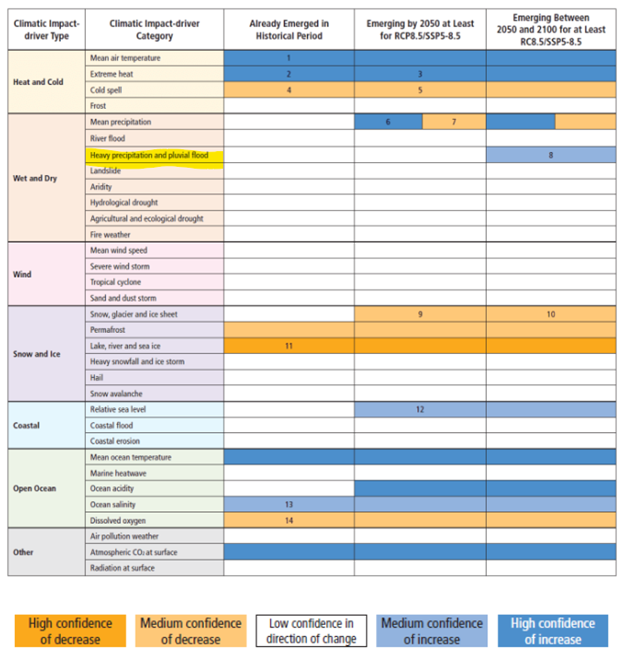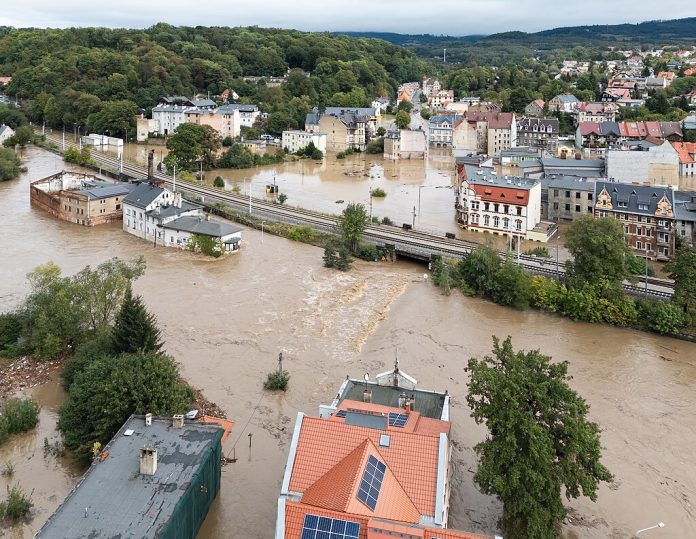Time magazine recently posted an article, titled “Is Climate Change Causing the Deadly Floods in Europe?” that, while providing some balance, still asserts that the recent flooding in Poland and other parts of Europe reflects a broader worsening pattern caused by climate change. This is false. There is no indication in the data showing a “pattern” of increasing flood severity or incidence.
Time admits that it’s “difficult to draw a conclusive link between this event and climate change,” but then says “experts say the most severe floods to hit the region in at least two decades fit into a broader pattern of extreme weather events.”
Later, Time quotes a professor from the University of Bristol who recommends attribution studies to determine whether or not the flooding is caused by climate change:
“It’s really difficult to relate a single event to climate change impact,” says Paul Bates, a professor of hydrology at the University of Bristol who specializes in the science of flooding. Bates says that in order to definitively prove whether or not climate change contributed to the flooding in Europe, researchers will need to conduct an attribution study, which takes at least several weeks. “Every time we do an attribution study, we tend to find that the events we see have been exacerbated by climate change, and I’m pretty sure that will be the case here, but we don’t yet conclusively know,” says Bates.
Several weeks for a peer reviewed study, that would be amazingly rapid.
As Climate Realism has pointed out before many times, attribution studies are over-trusted by the media and scientists, and are often used more like propaganda than science. Attribution studies compare unverified, counterfactual models of the Earth’s climate and emissions, assuming ahead of time that any difference between the models is due to human-caused carbon dioxide emissions. Neither model represents the world as it really is, and the modelers assume the conclusion before it is reached, using the models only to confirm their preexisting belief. As a result, the models never discover anything other than a human influence on weather events, and almost invariably suggest that human activities likely contributed to each event studied.
While it is true that warmer air holds more water, that does not translate directly to an increase in intense rainfall. Also, warming does not occur consistently even within a nation’s own borders, with some places (like cities) seeing more warming than the countryside, which in some places can even see cooling trends. Global average warming does not cause regional storms.
The Intergovernmental Panel on Climate Change’s 6th Assessment Report indicates that there is no sign yet of any increase in heavy precipitation and pluvial (flash or rain-caused) flooding. And only under the most extreme, unrealistic scenario does the IPCC speculate with medium confidence that climate change might impact flooding after 2050. (See figure below)

The European flood discussed in the article was not unprecedented. The Danube River, which carried much of the flooding in Europe this year, had an even worse flood in 1997. Similar floods devastated Budapest in 1838, Vienna has always fought with the Danube, and there are many other longstanding historical records of major floods throughout history in the region.
Cities that invested in flood management fared better in the recent event than those that didn’t –this would be the case whether or not climate change was a factor in flooding trends. Overall, Time’s post isn’t that terrible, it is careful to not make any statements that are too certain when it comes to the climate connection. However, it is a mistake to suggest that there is an existing pattern of worsening severe weather like flooding caused by climate change when available data shows no changing trends.
















Quote: “Neither model represents the world as it really is, and the modelers assume the conclusion before it is reached, using the models only to confirm their preexisting belief.”
Indeed, no scientist would deliver a model that gives a result that he doesn’t belief himself and he will continue to ‘fix’ it. That’s why every computer model that has not gone through repeated cycles of trial and error is completely useless. And that means that computer models that predict the future or any other single event cannot be reliable at all.